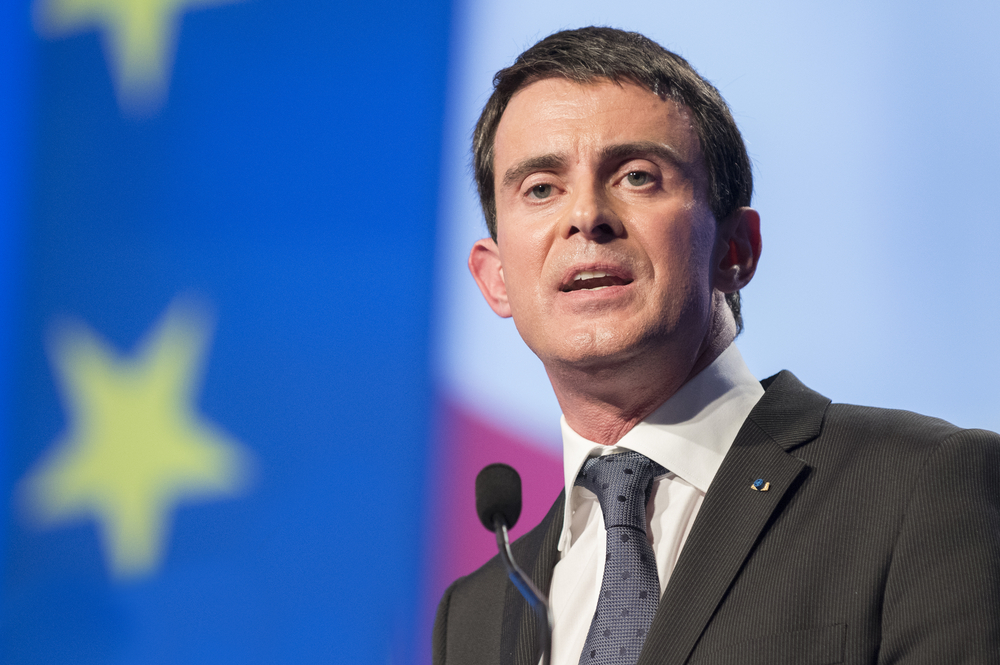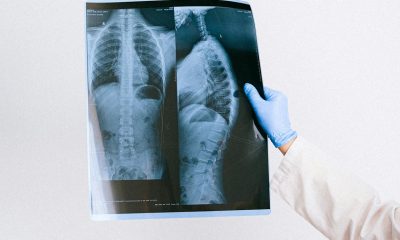Politics
French PM acknowledges “failings” in preventing attack
PARIS — France’s prime minister on Friday acknowledged “failings” in intelligence that led to a three-day spree of horror and at least 20 people dead, as criticism mounted that the attacks might have been avoided if officials had been more alert to the deadly peril posed by suspects already on their radar.
Even as authorities were still investigating the events during three days of violence, a debate brewed over who should be held accountable in the apparent lapses by law enforcement and national security officials.
Some security experts, however, noted the huge difficulties faced by authorities in preventing attacks when potential terrorists and their sympathizers number in the thousands on official watch lists.
The experts note other factors at play: Security services are drowning in data, overwhelmed by the quantity of people and emails they are expected to track, and hampered by the inability to make pre-emptive arrests in democratic countries.
The French government appeared to be steeling itself for recriminations. “There was a failing, of course,” French Prime Minister Manuel Valls said on BFM television. “That’s why we have to analyze what happened.”
Criticism has focused on the failure to more closely follow the two brothers who carried out Wednesday’s attack on the Charlie Hebdo newspaper. One had been convicted on terrorism charges and the other was believed to have linked up with al-Qaida forces while in Yemen. Both were on the U.S. no-fly list, according to a senior U.S. official, because of their links to terrorist movements.
Michel Thooris, secretary-general of the France Police labor union, called the French attack a “breakdown” in security. Somewhere along the line the suspects fell through the cracks, he said: either the judicial system not sentencing them strongly enough, or a failure in police surveillance. “This was a military strike against civilians by individuals at war, in a country at peace,” he said.
Thooris also criticized authorities for not doing more to warn the public to stay away from sensitive sites after the suspects went on the run, and said “lax” French regulations allowed for terrorism to be imported from war zones abroad.
“The current policy of blocking French citizens from traveling abroad to wage jihad by letting them run free is absurd,” he said. “If they can’t go fight in Syria or Iraq, they’ll fight here in France.”
Many observers tend to blame poor police work in these types of attacks. They note that the French suspects were on police radar, as were two radical Islamists who killed British soldier Lee Rigby in London in 2013.
And just because someone is on a watch list does not mean they will be followed all the time.
Intelligence officials decline to reveal specifics about their country’s lists, but it is believed they include thousands of people around the continent. Lists typically include not only returning jihadis, but people suspected of financial crimes, sex crimes and other serious offenses.
“Those watch lists are quite long, especially since 9/11, which means the police don’t have the resources to follow everyone,” said Benoit Gomis, a Frenchman who is a counter-terrorism expert with the Chatham House research group in the U.K. “It difficult to track the right people. We have so much noise, so much data, but we can’t necessarily find the right information and act on it when it’s needed.”
In the case of Cherif and Said Kouachi, the chief suspects in the slaughter of 12 people at the satirical newspaper in Paris, efforts to track the brothers were weakened by legal considerations. Said had no criminal record, and the latest legal case against Cherif had ultimately been thrown out.
“You can only do so much within the rule of law,” Gomis said. “You can’t arrest them for extreme views. Lots of people will say we should have arrested them, or put them in jail, but we need to respect the rule of law.”
British security officials say acts of terror are more likely to be committed by people police are already aware of. But in practical terms, they say, the number of people requiring surveillance has jumped substantially in western Europe as an increasing number of mostly young Muslims have traveled to Syria to join forces with the Islamic State group and other militant organizations fighting the regime there.
Spanish officials say roughly 3,000 Europeans have left to join jihadi movements, and many have returned home after getting extensive training in weapon use plus ideological indoctrination as potential terrorists.
These returnees form the core risk group, and predicting which ones will launch attacks is proving extremely difficult, Spanish Interior Minister Jorge Fernandez Diaz said Friday in an interview on Spain’s Telecinco television network.
“There are hundreds of them in Europe and they could activate themselves at any time as solitary actors, integrated in cells or in loosely structured groups and could produce very tragic events like we have seen in Paris,” he said.
Top Italian anti-terrorist prosecutor Armando Spataro said that rogue terrorists are one of the new threats.
“It is clear that when confronted with a situation like these isolated episodes, even the best and the most prepared police in the world cannot prevent them,” Spataro said, adding that he did not agree with criticism that the French police had dropped the ball.
Spataro was skeptical that watch lists were helpful in the fight against terrorism – citing the 2009 case of a Nigerian who had been reported by his father as intending to mount a terrorist attack but who managed nonetheless to get on a Delta flight from Amsterdam to Detroit. And he was critical of the Italian interior minister’s announcement that there were 53 Jihadists under surveillance in Italy.
“If that is true, maybe better not to say anything and investigate them instead,” Spataro said. `’Maybe now they will flee.”
In Austria, Interior Minister Johanna Mikl-Leitner said agencies “have their eyes” on 60 jihadis who have returned from conflict zones. She said all of them face criminal charges for suspicion of supporting a terrorist organization.
In the Czech Republic, the counter-intelligence service known as BIS is seeking increased powers to monitor financial transactions and communications. Draft legislation says the agency seeks information “about individuals who are known to be supporters and promoters of a radical version of Islam.”
Each country uses a different system to keep track of suspected extremists. Germany does not keep a centralized watch list at the federal level, but the security service of each state maintains lists of people considered dangerous.
In extreme cases, German officials can remove passports, require suspects to regularly report to police, or even take them into custody if there is enough evidence to hold them before charges are brought.
Germany’s Interior Minister Thomas de Maiziere said late Thursday that the number of Islamic extremists currently considered dangerous is about 260 – the highest number ever.
“The situation here is serious, we have grounds for concern and to take precautions, but not for fear and panic,” he said on public television.
Katz reported from London. Associated Press writers Alan Clendenning in Madrid, Colleen Barry in Milan, David Rising in Berlin, Sylvie Corbet in Paris, Karl Ritter in Stockholm, Karel Janicek in Prague, and George Jahn in Vienna contributed.






















